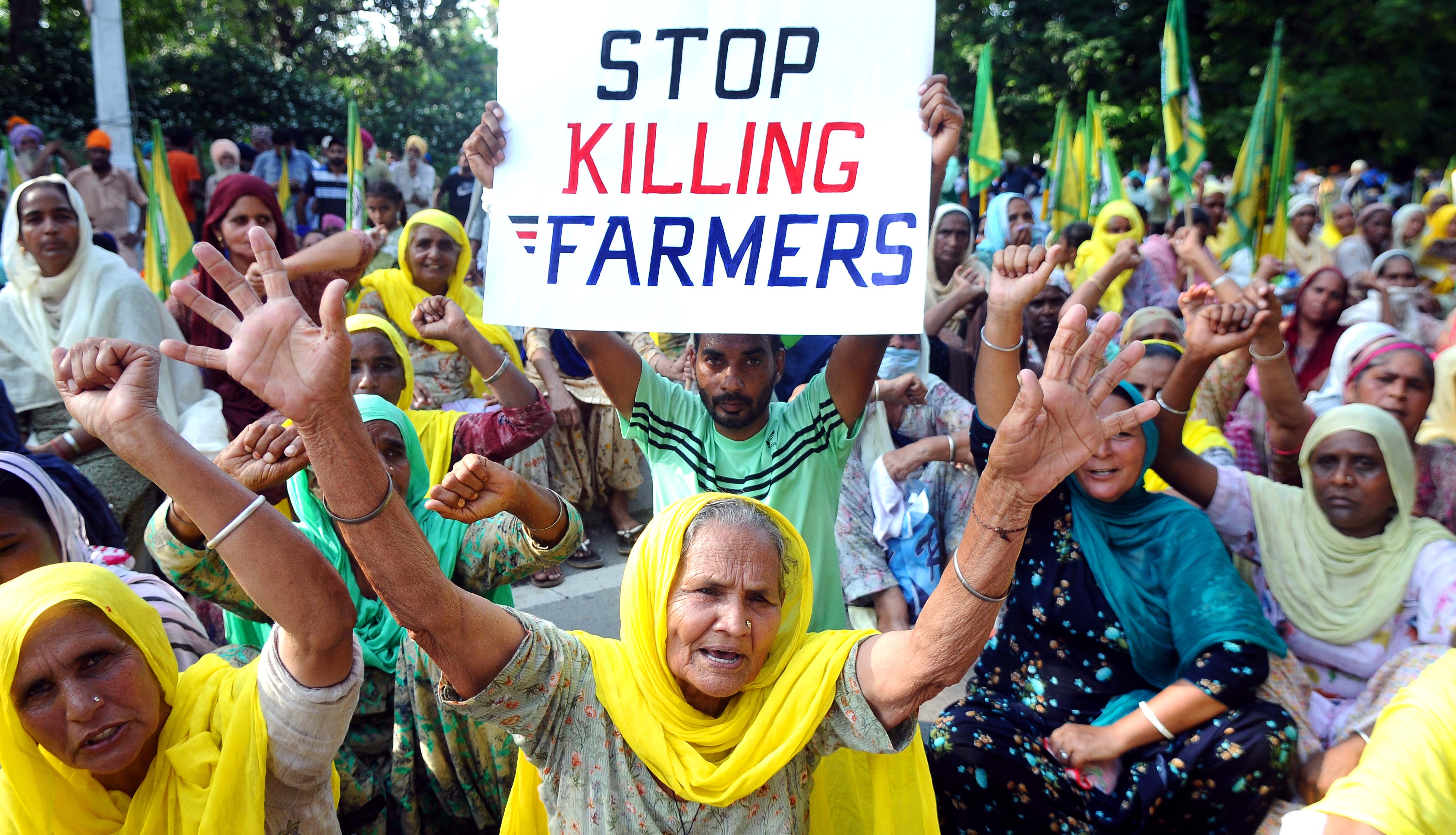News feed

Over the past six months, millions of farmers have been protesting in India in freezing conditions to demand the repeal of three recent agricultural bills passed by the country’s right-wing Prime Minister, Narendra Modi. Farmers believe the bills, which do not guarantee minimum prices for wheat and rice, prioritise corporate interests over their own and that, because more than half of India’s 1.3b population works on farms, the result will be a catastrophic rise in the debt and poverty millions are already living in.
In the past month especially, the farmer’s protests have been turning violent with reports of sexual abuse and police brutality, followed by a campaign of censorship – media blackouts, internet shutdowns and the arrest of journalists and activists who are working to get word about what’s happening picked up internationally.
On February 2nd, a week after an organised “tractor rally” in Delhi on the country’s National Republic Day spurred further violence, Rihanna took to Twitter to ask a poignant question: “Why aren’t we talking about this?”
why aren’t we talking about this?! #FarmersProtest https://t.co/obmIlXhK9S
— Rihanna (@rihanna) February 2, 2021
What is happening?
As early as July 2020, protestors took to the streets ahead of the September signing of three new bills which directly impact farmers, who make up almost 60 percent of India’s population. Farmers fear the new laws will lead to big corporations taking over, arguing that reductions in prices will make it too difficult for small and medium-scale farmers, who are already battling rising temperatures and droughts due to climate change, to make ends meet. Since the farmer’s protests began, there have been reports of violence, police brutality and media blackouts by the government. One activist Nodeep Kaur has been arrested and reportedly sexually assaulted in police custody and farmers, who were arrested during a tractor rally on January 26th, are still missing.
At its core, the protest reflects global issues of workers’ rights and labor regulations. Though, as marie claire reports, the Indian government’s treatment of the protestors has now begun to veer dangerously into human rights violation territory.
Why was there an internet shut down?
Following the tractor rally on January 26th, during which, according to the BBC, one protestor died, more than 300 police officers were injured, and more than 200 protestors – including eight working journalists – were detained, local internet services across several areas of India’s National Capital Territory were shut down and Twitter’s India office temporarialy suspended accounts which had been reporting on the protests (per The Atlantic). Indian digital rights groups called the shutdown “a blatant violation of our rights.”
Why are pictures of celebrities’ faces being burned?
Rihanna, Greta Thunberg and Meena Harris, the lawyer, author and niece of US Vice-President Kamala Harris, have been among those raising awareness and, as a result, extremists have been burning their images on the streets. Harris wrote on Instagram, “Weird to see a photo of yourself burned by an extremist mob but imagine what they would do if we lived in India. I’ll tell you—23 yo labor rights activist Nodeep Kaur was arrested, tortured & sexually assaulted in police custody. She’s been detained without bail for over 20 days.”
Weird to see a photo of yourself burned by an extremist mob but imagine what they would do if we lived in India. I'll tell you—23 yo labor rights activist Nodeep Kaur was arrested, tortured & sexually assaulted in police custody. She's been detained without bail for over 20 days. pic.twitter.com/Ypt2h1hWJz
— Meena Harris (@meenaharris) February 5, 2021
What has happened to activist Nodeep Kaur?
23-year-old activist Nodeep Kaur was arrested on January 12th while she was protesting with farmers. According to The Wire, she was denied bail twice due to a range of charges against her including Section 307 – attempt to murder. Kaur’s sister, Rajvir, says that the allegations are false and that Nodeep was sexually assaulted while in police custody. “Nodeep joined the (farmers’) protest at Singhu in November. She was also fighting for laborers who didn’t get wages regularly. On January 12, she was protesting near a factory in Kundli when police picked her up… I met her and she told me cops assaulted her in custody,” she told The Indian Express.
on january 12—haryana police abducted nodeep kaur from her tent at singhu protest. since then she has been beaten & sexually assaulted while under police custody.
nodeep is 23 yold punjabi dalit woman & trade union activist who has been bravely speaking up about the protests. pic.twitter.com/XvN6TJwKj8
— rupi kaur (@rupikaur_) January 31, 2021
How can you help?
A huge way of helping the farmers is by sharing what’s happening on social media, no matter how small your following. Indian poet Rupi Kaur wrote on Instagram, “Post on social media to raise awareness. I know this seems small, but it creates a ripple effect that will save lives. I’ve been advised by many human rights organisations that raising awareness on social media is the most effective tactic when dealing with the Indian government. They are highly sensitive to international attention – so let’s give it to them.”
You can sign a peititon here.
You can donate here.









